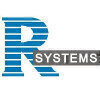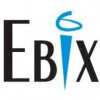Filter interviews by
MongoDB Consultant Engineer Interview Questions and Answers for Experienced
5 Interview questions
Approaching unfamiliar coding problems requires a structured method to break down and solve them effectively.
Understand the problem: Read the question carefully and identify key requirements.
Break it down: Divide the problem into smaller, manageable parts or steps.
Research: Look for similar problems or solutions online, such as on Stack Overflow or GitHub.
Pseudocode: Write pseudocode to outline your logic before c...
We have used a combination of containerization and orchestration tools like Docker and Kubernetes for our microservices architecture.
We have followed the principles of domain-driven design to identify the boundaries of our microservices.
We have used RESTful APIs for communication between microservices.
We have implemented fault tolerance and resilience patterns like circuit breakers and retries.
We have used event-d...
A multi-level parking system schema design involves creating a database to manage parking spots and their availability.
Create a database to store information about parking spots, levels, and availability
Design a user interface for customers to view available spots and reserve them
Implement a system to track the entry and exit of vehicles
Incorporate sensors or cameras to monitor parking spot availability
Consider in...
Indexing strategy is a method of organizing and optimizing data retrieval from a database.
Choose appropriate data structures for indexing
Consider the size and complexity of the database
Regularly analyze and optimize the indexing strategy
Examples: B-tree, hash index, bitmap index
Indexing internals refer to the mechanisms and structures used to efficiently retrieve data from databases.
B-trees are commonly used for indexing in databases, allowing for efficient searching, insertion, and deletion.
Hash indexing uses a hash function to map keys to specific locations, providing fast access for equality searches.
Bitmap indexes are effective for columns with a limited number of distinct values, op...
MongoDB Consultant Engineer Interview Experiences for Experienced
2 interviews found
I applied via LinkedIn and was interviewed before Oct 2022. There were 7 interview rounds.

(1 Question)
- Q1. Basic questions around yourself, and your communication skills were monitored. The overall language capabilities were checked to ensure that you were a good fit for the organisation. Since the role was a c...
(1 Question)
- Q1. Schema Designing questions on how you would design a certain use case with MongoDB. This was done to understand your technical knowledge about database systems
(1 Question)
- Q1. System design questions, on how you would design the architecture of a system based on a certain use case. This was done to understand the thinking capabilities around system architecture and figuring out ...
(1 Question)
- Q1. Coding questions, to understand what you would do to approach a certain problem, especially when found to be out of your wheelhouse.
(1 Question)
- Q1. Coding questions, to understand your approach to problems and gauge your problem solving skills and technical depth.
(1 Question)
- Q1. Final interview with head of department
Interview Preparation Tips
I applied via Recruitment Consultant and was interviewed in Dec 2020. There were 5 interview rounds.
Interview Questionnaire
5 Questions
- Q1. Schema design for Multi-Level Parking System?
- Ans.
A multi-level parking system schema design involves creating a database to manage parking spots and their availability.
Create a database to store information about parking spots, levels, and availability
Design a user interface for customers to view available spots and reserve them
Implement a system to track the entry and exit of vehicles
Incorporate sensors or cameras to monitor parking spot availability
Consider integra...
- Q2. Indexing Strategy?
- Ans.
Indexing strategy is a method of organizing and optimizing data retrieval from a database.
Choose appropriate data structures for indexing
Consider the size and complexity of the database
Regularly analyze and optimize the indexing strategy
Examples: B-tree, hash index, bitmap index
- Q3. Indexing Internals?
- Ans.
Indexing internals refer to the mechanisms and structures used to efficiently retrieve data from databases.
B-trees are commonly used for indexing in databases, allowing for efficient searching, insertion, and deletion.
Hash indexing uses a hash function to map keys to specific locations, providing fast access for equality searches.
Bitmap indexes are effective for columns with a limited number of distinct values, optimiz...
- Q4. Index Optimizations?
- Q5. Architectures for the Microservices you have recently worked on?
- Ans.
We have used a combination of containerization and orchestration tools like Docker and Kubernetes for our microservices architecture.
We have followed the principles of domain-driven design to identify the boundaries of our microservices.
We have used RESTful APIs for communication between microservices.
We have implemented fault tolerance and resilience patterns like circuit breakers and retries.
We have used event-driven...
Interview Preparation Tips
Skills evaluated in this interview
Top trending discussions




Interview questions from similar companies

I applied via Company Website and was interviewed before Jul 2020. There were 3 interview rounds.
Interview Questionnaire
2 Questions
- Q1. Scrum
- Q2. Agile
Interview Preparation Tips

Interview Questionnaire
2 Questions
- Q1. Algorithm and Trick questions on Java
- Q2. Your future interest, interaction capabilities
Interview Preparation Tips
Experience: Mention only those projects/works which you feel fully confident on, let any question be thrown your way.
Believe me, a simple project explained in a good way is better than a complex project that scares you going into the details.
Tips: A little bit of extra activities (sports/music) helps them picture you as not a total nerd, which might help in front of some interviewers.
Round: Interview
Experience: They will mostly try to trick you here, even if you are right, they will make you doubt yourself. It's just about believing oneself and answering in one go.
Tips: Stick to your answers if you feel it's right, changing it again and again won't do you much good.
Round: Interview
Experience: This is where you have to be most careful, what they seek is just your interest in the company or infact passion for their work and not leaving them mid-way for higher studies or startup plans.
Tips: Diverting talks to some extra-currics might help a lot here specially if they have interest in that too, like the one, I was giving interview to, was wearing a Barcelona cap and I had mentioned that I played football at Inter-Hostel level. So we talked about the recent Premier league for like 10 minutes and the mood was really lightened, thanks to that.
General Tips: It is never too late to be what you might have been.
Skills: Algorithms, Java, Interaction Skills, coding, C, C++
College Name: IIT DELHI
Motivation: The technology (Social-Media Management) they are working on is really interesting to know more about and can be a future pioneer in the coming days.
Funny Moments: One of the interviewer I became so friendly with, mid-way through the interview that we added each other right there on facebook.

Interview Preparation Tips
Experience: They asked to write 2 codes on recursion. Then some questions on resume. I asked them about the job profile and after knowing that they were hiring candidates for frontend programming, about which they didn’t mention in JAF. I told them that I was not interested in frontend development. And didn’t even answer any question after that. Unfortunately, I was selected.
General Tips: Plan your schedule judiciously keeping your capacity in mind. There is no point of making ideal plans and then not able to do even 50% of it.
Don’t get into unnecessary arguments or debate with people.
Don’t think about what others are doing. Focus on your preparation.
How you carry yourself matters. So, make sure you portray yourself in the way you want the other person to perceive you.
Be selective while applying for companies.
College Name: IIT Kanpur

Interview Questionnaire
10 Questions
- Q1. Tell about yourself?
- Q2. Why Software industry? why not core?
- Ans.
Software industry offers endless opportunities for innovation and growth.
Software industry is constantly evolving and offers opportunities to work on cutting-edge technologies.
It provides a platform to solve complex problems and create innovative solutions.
The demand for software engineers is high and the industry offers competitive salaries.
Core industries may have limited scope for growth and innovation compared to s...
- Q3. Write a program to print the given string in reverse
- Ans.
Program to print a given string in reverse
Create a character array of the given string
Loop through the array from end to start and print each character
- Q4. Some questions about computer networks and Digital electronics
- Q5. What is Mux? what are its real life applications?
- Ans.
Mux is a device that selects one of several input signals and forwards the selected input into a single output line.
Mux stands for Multiplexer.
It is used in digital circuits to select one of several input signals and forward the selected input into a single output line.
It is used in communication systems to combine multiple signals into a single channel for transmission.
It is used in video and audio systems to switch b...
- Q6. What is DeMux? what are its real life applications?
- Ans.
DeMux is short for Demultiplexer. It is a digital circuit that takes one input and directs it to multiple outputs.
DeMux is used in digital communication systems to separate signals that have been combined for transmission.
It is also used in computer memory systems to select a specific memory location.
DeMux is used in video and audio systems to separate different channels of information.
It is used in automation systems ...
- Q7. Difference between decoder and Demux
- Ans.
Decoder converts encoded data into a readable format while Demux separates a single input into multiple outputs.
Decoder is used to decode encoded data such as binary data into a readable format.
Demux is used to separate a single input into multiple outputs based on the control signals.
Decoder is a combinational circuit while Demux is a sequential circuit.
Decoder is used in applications such as remote controls, computer...
- Q8. Why amadeus labs?
- Ans.
Amadeus Labs is a leading technology company in the travel industry.
Amadeus Labs provides opportunities to work on cutting-edge technologies.
The company has a strong focus on innovation and research.
Amadeus Labs has a global presence and offers a diverse and inclusive work environment.
Working at Amadeus Labs provides the opportunity to make a real impact on the travel industry.
The company values work-life balance and o...
- Q9. Are you comfortable in working for Testing?
- Ans.
Yes, I am comfortable working for Testing.
I have experience in testing and understand its importance in software development.
I am willing to learn new testing techniques and tools.
I am comfortable working with testing teams and collaborating with them to ensure quality software.
I understand the importance of testing in ensuring customer satisfaction and reducing costs.
Examples: I have experience in manual and automated...
- Q10. Why do you consider yourself suitable for developer role?
- Ans.
I have the necessary skills and experience to excel in the developer role.
I have a degree in computer science and have completed multiple coding projects.
I am proficient in programming languages such as Java, Python, and C++.
I have experience working with databases and web development frameworks.
I am a quick learner and enjoy solving complex problems.
I am a team player and have collaborated with other developers on var...
Interview Preparation Tips
Experience: The test was conducted online. All the questions were of medium standard and easy to crack if we have patience for thinking.
English comprehension level is slightly below the standard of CAT. Those who have the habit of reading English news paper can easily crack the test.
Data analysis questions were also of medium standard. Those who have knowledge about graphs, bar & pie charts can easily crack the exam.
Tips: Practice Aptitude questions from R S Agarwaal book and CAT material.
Round: Technical Interview
Experience: Over all interview experience is cool. Interviewers never grilled on anything. In many cases they have helped me to arrive at answers.
Tips: Read C++ and Oops concepts from E Balaguruswamy text book.
For Data structures and algorithms read 'Data structures' by Yeshwant kanethkar.
Minimum knowledge about all the courses of your department will be an added advantage. This will help you to depict you are sincere in your studies and don't have any personal constraints in learning a new thing.
General Tips: Just be confident and believe in yourself. You will get through.
Skills: Programming skill in C++
College Name: NIT Warangal
Motivation: No special motivation. It is a rapidly growing company offering good package.
Skills evaluated in this interview

I appeared for an interview in Aug 2016.
Interview Preparation Tips
Experience: The questions were tricky. We were given a paragraph and after reading it, a statement was given to us and we were asked to say if it is true, false or cannot say. The structure of the statement put us into a a tough place. So practice of such kind of questions is necessary.
For data interpretation questions a good hand on basic statistical mathematics is needed. One has to be quick because of the time crunch. The questions were approachable
Round: Technical Interview
Experience: In this round my resume was scanned and I was required to speak about myself, my projects and explain certain areas of my resume. The interviewer picked up one of my basic project, surprisingly, and asked me to elaborate on it. He asked me how I can improve the project. And I had to write a code to make that change. Basically, one should have a good idea about the projects they've done/ mentioned in their resume. And know it in detail.
Few questions on data structures. Prepare well for coding type questions and data structures.
Round: Puzzle Interview
Experience: The interviewer asked me two puzzles. They were moderate level. And also luckily he was helpful whenever I got stuck.
Round: HR Interview
Experience: HR round was good. Basic questions like " tell me more about yourself", brief information about my past history, college life, extra curricular activities. In the end she asked me, "should we hire you?" And I lightly answered " why not!" So it was a good interview overall.
Skills: Coding Skills, Team Working Ability, Project management
College Name: Visvesvaraya National Institute Of Technology

Software Developer Interview Questions & Answers
Oracle Cernerposted on 19 Aug 2016
Interview Questionnaire
19 Questions
- Q1. Introduce yourself
- Ans.
I'm a passionate software developer with a strong background in full-stack development and a love for problem-solving.
Education: Bachelor's degree in Computer Science from XYZ University.
Experience: 3 years as a full-stack developer at ABC Corp, where I worked on web applications using React and Node.js.
Skills: Proficient in JavaScript, Python, and SQL; familiar with Agile methodologies.
Projects: Developed an e-commerc...
- Q2. Tell me more about your achievements
- Ans.
I have successfully led projects, improved processes, and contributed to team growth in my software development career.
Led a team of 5 developers to deliver a web application ahead of schedule, improving client satisfaction by 30%.
Implemented a CI/CD pipeline that reduced deployment time by 50%, allowing for more frequent updates.
Developed a machine learning model that increased prediction accuracy by 20%, enhancing pr...
- Q3. What sort of projects do you work on ?
- Ans.
I work on a variety of projects ranging from web development to mobile app development.
Web development using HTML, CSS, JavaScript, and various frameworks such as React and Angular
Mobile app development for iOS and Android using Swift, Kotlin, and React Native
Database design and management using SQL and NoSQL databases such as MySQL and MongoDB
API development and integration using REST and GraphQL
Machine learning proje...
- Q4. What is the difference between a hardworker and a smartworker?
- Ans.
A hardworker puts in more effort, while a smartworker works efficiently and effectively.
A hardworker may spend more time on a task, while a smartworker finds ways to complete it faster.
A hardworker may rely on brute force, while a smartworker uses their skills and knowledge to solve problems.
A hardworker may struggle with prioritization, while a smartworker knows how to focus on the most important tasks.
A hardworker ma...
- Q5. What makes you say that you are more of a developer than an analyst ?( I was asked for choice )
- Ans.
I focus on coding and building software solutions, while analysts primarily interpret data and requirements.
I enjoy writing code and developing applications, such as creating a web app using React and Node.js.
My experience includes debugging and optimizing existing code, which is a core developer responsibility.
I prefer hands-on problem-solving, like implementing algorithms to improve performance in software projects.
I...
- Q6. Why is Zuckerburg in news these days?
- Ans.
Zuckerberg is in news due to Facebook's handling of user data and misinformation.
Facebook's role in the 2016 US Presidential election
Cambridge Analytica scandal
Testimony before US Congress
Ongoing debate on social media regulation
- Q7. Tell me about yourself
- Ans.
I'm a passionate software developer with a strong background in full-stack development and a love for solving complex problems.
Over 5 years of experience in software development, specializing in JavaScript and Python.
Developed a web application that improved user engagement by 30% through enhanced UI/UX design.
Worked in Agile teams, participating in daily stand-ups and sprint planning to ensure timely delivery of proje...
- Q8. Which is your favourite project (among mentioned in resume) and why?
- Q9. OOPs concepts
- Q10. Explain inheritance
- Ans.
Inheritance is a mechanism in object-oriented programming where a new class is created by inheriting properties of an existing class.
Inheritance allows code reuse and promotes code organization.
The existing class is called the parent or superclass, and the new class is called the child or subclass.
The child class inherits all the properties and methods of the parent class and can also add its own unique properties and ...
- Q11. Difference between finally , finalize and final
- Ans.
finally is a keyword used in try-catch block, finalize is a method in Object class, and final is a keyword used for declaring constants.
finally is used to execute a block of code after try-catch block
finalize is called by garbage collector before destroying an object
final is used to declare a constant variable or to make a class uninheritable
- Q12. Private vs final keyword in considerance with member functions in an application offered to the user
- Ans.
Private keyword restricts access to member functions within the class while final keyword prevents overriding of functions.
Private keyword is used to hide the implementation details of a class from the user.
Final keyword is used to prevent the user from overriding a function in a subclass.
Using private and final keywords together can ensure that the implementation details of a class are not modified by the user.
- Q13. Write an interface
- Ans.
An interface defines a set of methods that a class must implement.
An interface is declared using the 'interface' keyword.
All methods in an interface are public and abstract by default.
A class can implement multiple interfaces.
Interfaces can also extend other interfaces.
Example: public interface MyInterface { void myMethod(); }
- Q14. Difference between Abstract class and Interface
- Ans.
Abstract class is a class with some implementation while Interface is a contract with no implementation.
Abstract class can have constructors while Interface cannot
Abstract class can have non-abstract methods while Interface cannot
A class can implement multiple interfaces but can only inherit from one abstract class
Abstract class is used when there is a need for common functionality among related classes while Interface...
- Q15. Inheritance types in Java
- Ans.
Inheritance types in Java
Java supports single and multiple inheritance through classes and interfaces respectively
Single inheritance is when a class extends only one parent class
Multiple inheritance is when a class implements multiple interfaces
Java also supports hierarchical inheritance where multiple classes extend a single parent class
Java does not support multiple inheritance through classes to avoid the diamond pr...
- Q16. Order of multiple catch blocks in a single try block in java. Will it compile if the general catch was before the specific one?
- Ans.
Order of catch blocks in a try block in Java
Specific catch blocks should come before general catch blocks
If general catch block comes before specific catch block, it will result in a compile-time error
If multiple catch blocks are present, only the first matching catch block will be executed
- Q17. What do you know about Garbage collection
- Ans.
Garbage collection is an automatic memory management process that frees up memory occupied by objects that are no longer in use.
Garbage collection is used in programming languages like Java, C#, and Python.
It helps prevent memory leaks and reduces the risk of crashes due to memory exhaustion.
Garbage collection works by identifying objects that are no longer in use and freeing up the memory they occupy.
There are differe...
- Q18. Write code for connecting a java application to the database
- Ans.
Code for connecting a Java application to a database
Import the JDBC driver for the specific database
Create a connection object using the DriverManager class
Create a statement object to execute SQL queries
Execute the query and retrieve the results
Close the connection and release resources
- Q19. What is JSON?
- Ans.
JSON (JavaScript Object Notation) is a lightweight data interchange format that's easy for humans to read and write.
JSON is text-based and uses a syntax similar to JavaScript objects.
It represents data as key-value pairs, e.g., {"name": "John", "age": 30}.
JSON supports various data types: strings, numbers, arrays, objects, booleans, and null.
It's widely used in APIs for data exchange between a server and a client.
JSON ...
Interview Preparation Tips
Experience: The test had 50 questions which were to be answered in 50 minutes. The test is not very difficult if you got basic skills in aptitude, but the most important thing is managing time. The level of difficulty was moderate.
Tips: Do not waste time on verbal questions which have a direct answer ( synonyms and antonyms) which you are not very sure of.
Just try making a smart guess when you have a doubt by elimination or something.
Duration: 50 minutes
Total Questions: 50
Round: HR Interview
Experience: I wouldn't say it went great but it was fine. I did not think I would clear it as for most of the questions the interviewer seemed disappointed and wanted more out of me.
Tips: Keep smiling.
Only put things which you are thorough about, in your resume.
The interviewer too doesn't know everything, so just be confident in whatever you say-the interviewer might get convinced.
Round: Technical Interview
Experience: The interviewer was really cool. He realized that I mostly work on java applications so he chose to ask me stuff related to that.
He didn't want me to know the answer well but just wanted me to approach to it, maybe think more.
He went through my resume back and forth and asked mostly about all my projects and their logic and how could I take them to the next level.
Tips: Be confident.
Its okay not to know any answer, just try giving it a shot in the approach.
Skills: Object Oriented Programming (OOP) Basics, Basics Of Machine Learning, Ability To Analyse, Ability To Think Of Creative Solutions, Ability To Think Beyond Boundaries, Ability To Convince, Database Management, Java Programming
College Name: Amrita School Of Engineering, Coimbatore
Funny Moments: I had mentioned Japanese as languages known in my resume. During the HR interview , I was asked to tell "How are you ?" in Japanese. I knew that the interviewer didn't know any of that language but I was a little scared to just tell anything.
You could try giving a shot in a similar situation :P
Skills evaluated in this interview

I appeared for an interview before Mar 2021.
(6 Questions)
Round duration - 60 minutes
Round difficulty - Medium
The interviewer was really cool. He realized that I mostly work on java applications so he chose to ask me stuff related to that. He didn't want me to know the answer well but just wanted me to approach to it, maybe think more. He went through my resume back and forth and asked mostly about all my projects and their logic and how could I take them to the next level.
Tips: Be confident. Its okay not to know any answer, just try giving it a shot in the approach.
- Q1. What is the difference between an abstract class and an interface in Java?
- Q2. What is the difference between 'final', 'finally', and 'finalize' in Java?
- Ans.
final is a keyword used to declare constants, finally is a block used in exception handling, and finalize is a method used for cleanup.
final is a keyword used to declare constants in Java, meaning the value cannot be changed once assigned. Example: final int x = 10;
finally is a block used in exception handling to ensure a piece of code is always executed, whether an exception is thrown or not. Example: try { // code } ...
- Q3. What is the difference between the private and final access modifiers in Java?
- Ans.
Private restricts access to the class itself, while final prevents inheritance and method overriding.
Private access modifier restricts access to the class itself, while final access modifier prevents inheritance and method overriding.
Private members are only accessible within the same class, while final classes cannot be extended and final methods cannot be overridden.
Example: private int num; - num can only be accesse...
- Q4. What are the steps for establishing a JDBC connection?
- Ans.
Establishing a JDBC connection involves loading the driver, creating a connection, creating a statement, executing queries, and handling exceptions.
Load the JDBC driver using Class.forName() method
Create a connection using DriverManager.getConnection() method
Create a statement using connection.createStatement() method
Execute queries using statement.executeQuery() method
Handle exceptions using try-catch blocks
- Q5. What is JSON?
- Q6. What do you know about garbage collection in Java?
- Ans.
Garbage collection in Java is the process of automatically managing memory by deallocating objects that are no longer needed.
Garbage collection helps in preventing memory leaks by reclaiming memory used by objects that are no longer referenced.
Java uses a garbage collector to automatically manage memory, unlike languages like C++ where memory management is manual.
Garbage collection in Java can be triggered by calling S...
Round duration - 30 minutes
Round difficulty - Easy
I wouldn't say it went great but it was fine. I did not think I would clear it as for most of the questions the interviewer seemed disappointed and wanted more out of me.
Interview Preparation Tips
Tip 1 : Must do Previously asked Interview as well as Online Test Questions.
Tip 2 : Go through all the previous interview experiences from Codestudio and Leetcode.
Tip 3 : Do at-least 2 good projects and you must know every bit of them.
Tip 1 : Have at-least 2 good projects explained in short with all important points covered.
Tip 2 : Every skill must be mentioned.
Tip 3 : Focus on skills, projects and experiences more.
Skills evaluated in this interview

Interview Questionnaire
21 Questions
- Q1. AVL tree balance checking
- Ans.
AVL tree balance checking ensures that the tree maintains its height-balanced property after insertions and deletions.
An AVL tree is a self-balancing binary search tree.
The balance factor (BF) of a node is defined as the height of the left subtree minus the height of the right subtree.
A node is considered balanced if its BF is -1, 0, or +1.
To check balance, recursively calculate the height of left and right subtrees fo...
- Q2. Median of 2 sorted arrays in O(log N) time complexity and O(1) space complexity
- Ans.
Find the median of two sorted arrays in O(log N) time and O(1) space using binary search.
Use binary search on the smaller array to minimize time complexity.
Partition both arrays into left and right halves.
Ensure the largest element on the left is less than or equal to the smallest on the right.
Calculate the median based on the combined length of the arrays (even or odd).
Example: For arrays [1, 3] and [2], the median is...
- Q3. Strings Anagram in O(1) space complexity
- Ans.
Check if two strings are anagrams using O(1) space by manipulating character counts in place.
Anagrams have the same characters with the same frequency. Example: 'listen' and 'silent'.
To achieve O(1) space, modify the input strings directly if allowed.
Count characters using a fixed-size array (for ASCII) or bit manipulation for lowercase letters.
If strings are of different lengths, they cannot be anagrams.
- Q4. Level order traversal of a tree using Queue
- Ans.
Level order traversal of a tree using Queue
Create a queue and add the root node to it
While the queue is not empty, remove the front node and print its value
Add the left and right child nodes of the removed node to the queue
Repeat until the queue is empty
- Q5. Reverse level order traversal of a tree using Queue
- Ans.
Perform a bottom-up level order traversal of a binary tree's nodes, returning values from leaves to root.
Use a queue to perform a breadth-first traversal of the tree.
Store each level's values in a list, then reverse the list at the end.
Example: For tree [3,9,20,null,null,15,7], output is [[15,7],[9,20],[3]].
Alternatively, use recursion to collect values and reverse the result.
- Q6. BFS and DFS Difference
- Ans.
BFS explores neighbors level by level, while DFS dives deep into branches before backtracking.
BFS uses a queue data structure, while DFS uses a stack (or recursion).
BFS is optimal for finding the shortest path in unweighted graphs; DFS is not guaranteed to find the shortest path.
Example of BFS: Finding the shortest path in a maze.
Example of DFS: Solving puzzles like mazes or Sudoku.
BFS has a higher memory requirement t...
- Q7. OS Concepts – Starvation, Demand Paging, Virtual Memory, Deadlocks
- Q8. Parenthesis Balance Checking
- Ans.
Check if parentheses in a string are balanced using a stack-based approach.
Use a stack to track opening parentheses: '(', '{', '['.
For each closing parenthesis: check if it matches the top of the stack.
If the stack is empty at the end, parentheses are balanced.
Example: '((){})' is balanced, but '((())' is not.
- Q9. Three Jars - 1 with apples, 1 with oranges, 1 with apples and oranges. All of them wrongly labelled. Find min no of attempts to find the correct nature of boxes
- Q10. Find product of each element of an array except that element in O(N) time complexity without using / operation
- Ans.
Find product of each element of an array except that element in O(N) time complexity without using / operation
Use prefix and suffix products
Multiply prefix and suffix products for each element to get the final product
Handle edge cases where array has 0 or 1 element separately
- Q11. Recursively deleting linked list
- Ans.
Recursively delete a linked list
Create a recursive function that takes the head of the linked list as input
Base case: if the head is null, return
Recursively call the function with the next node as input
Delete the current node
- Q12. Recursively deleting linked list from end
- Ans.
Recursively delete a linked list involves traversing to the end and deleting nodes one by one.
Define a recursive function that takes the head of the linked list as an argument.
Base case: If the head is NULL, return (end of the list).
Recursive case: Call the function with the next node (head->next).
After returning from the recursive call, delete the current node (head).
Ensure to set head to NULL after deletion to avo...
- Q13. Recursively deleting tree
- Ans.
Recursively delete a tree by deleting all its child nodes and then the parent node.
Start from the leaf nodes and delete them first.
Then move up to the parent nodes and delete them.
Repeat until the root node is deleted.
Use post-order traversal to ensure child nodes are deleted before parent nodes.
- Q14. Recursively deleting from end
- Ans.
Recursively delete elements from the end of an array.
Create a recursive function that removes the last element of the array.
Call the function recursively until the desired number of elements are removed.
Handle edge cases such as empty arrays and removing more elements than the array contains.
- Q15. Difference between Floyd Warshall and Djikstra
- Ans.
Floyd-Warshall finds shortest paths between all pairs, while Dijkstra's finds shortest paths from a single source.
Floyd-Warshall is a dynamic programming algorithm, while Dijkstra's uses a greedy approach.
Floyd-Warshall can handle negative weights (but not negative cycles), whereas Dijkstra's cannot handle negative weights.
Floyd-Warshall has a time complexity of O(V^3), making it suitable for dense graphs, while Dijkst...
- Q16. Shortest path between 2 points in 2-D space in O(log N) time
- Ans.
There is no known algorithm to find shortest path in 2-D space in O(log N) time.
The best known algorithm for finding shortest path in 2-D space is Dijkstra's algorithm which has a time complexity of O(N^2).
Other algorithms like A* and Bellman-Ford have better time complexity but still not O(log N).
If the points are on a grid, Lee algorithm can be used which has a time complexity of O(N).
- Q17. Design a system for putting newspapers using classes and functions taking different aspects into account
- Ans.
Design a newspaper publishing system with classes for articles, editors, and distribution.
Class 'Article' to represent individual articles with attributes like title, content, and author.
Class 'Editor' to manage article submissions and revisions, ensuring quality control.
Class 'Newspaper' to aggregate articles, manage publication schedules, and handle layout.
Function 'publish()' in 'Newspaper' to finalize and distribut...
- Q18. SQL commands
- Q19. Career Prospects - Long Term Plans
- Q20. Why not higher studies?
- Ans.
I chose not to pursue higher education to focus on practical experience and skill development in software engineering.
I prioritized hands-on experience by working on real-world projects, which helped me build a strong portfolio.
I engaged in self-directed learning through online courses and coding bootcamps, gaining skills in languages like Python and JavaScript.
I took advantage of internships and entry-level positions ...
- Q21. Machine Learning Concepts - Based on my projects
Interview Preparation Tips
Experience: All Computer Science Topics Covered: Data Structures, Algorithms, Object Oriented Systems, C, C++, Operating Systems, Computer Architectures, Databases, SQL, Basic Quantitative Aptitude
Tips: Solve all of them. Cut off's generally go high.
Duration: 30 minutes
Total Questions: 30
Round: Interview
Experience: Nice Experience. Interviewer was friendly. He wanted exact solutions.
Tips: Be thorough with everything and your projects.
Round: Interview
Experience: Nice Experience. Interviewer was friendly. He wanted exact solutions.
Tips: Be thorough with everything and your projects.
Round: Interview
Experience: Nice Experience. Interviewer was friendly.
Tips: Do not fake yourself.
General Tips: Be thorough with all CS related concepts and projects.
Skill Tips: ""Be thorough.""
Skills: Algorithms, Data Structures, Operating Systems, Machine Learning, SQL, Operating Systems, Computer Architecture, Data Analytics
College Name: IIT Kharagpur
Motivation: Kind of application oriented work and the rising nature of the company. Obviously money also.
Funny Moments: Many funny questions and answers like did you have lunch, when did you last eat, etc
Skills evaluated in this interview
MongoDB Interview FAQs
Some of the top questions asked at the MongoDB Consultant Engineer interview for experienced candidates -
Tell us how to improve this page.
MongoDB Interviews By Designations
- MongoDB Consultant Engineer Interview Questions
- MongoDB Key Accounts Executive Interview Questions
- MongoDB Software Engineer Interview Questions
- MongoDB Data Analyst Interview Questions
- MongoDB Senior Software Engineer Interview Questions
- MongoDB Consultant Interview Questions
- MongoDB Operations Manager Interview Questions
- MongoDB SDE (Software Development Engineer) Interview Questions
- Show more
Overall Interview Experience Rating
based on 1 interview experience
Difficulty level
Duration
Interview Questions from Similar Companies
MongoDB Consultant Engineer Reviews and Ratings
based on 5 reviews
Rating in categories
|
Data Analyst
30
salaries
| ₹14.8 L/yr - ₹26 L/yr |
|
Consultant Engineer
29
salaries
| ₹25.5 L/yr - ₹40.1 L/yr |
|
Senior Data Analyst
19
salaries
| ₹14.9 L/yr - ₹26.2 L/yr |
|
Solution Architect
16
salaries
| ₹29.6 L/yr - ₹51.7 L/yr |
|
Technical Service Engineer
12
salaries
| ₹22.1 L/yr - ₹40 L/yr |

Thomson Reuters

Oracle Cerner

Chetu

R Systems International
- Home >
- Interviews >
- MongoDB Interview Questions >
- MongoDB Interview Questions for Experienced















